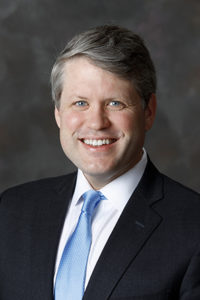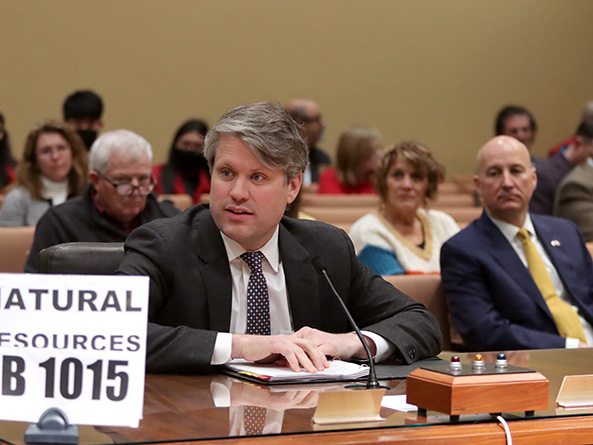Canal proposal seeks to preserve Nebraska water rights under compact
A canal would divert South Platte River flows from Colorado to Nebraska under a bill heard Feb. 9 by the Natural Resources Committee.
LB1015, introduced by Speaker Mike Hilgers of Lincoln at the request of Gov. Pete Ricketts, would authorize the state Department of Natural Resources to develop, construct, manage and operate the canal and its associated storage facilities, called the Perkins County Canal Project, under the terms of the South Platte River Compact.

The bill also would authorize the department to use eminent domain to acquire land and resolve any legal disputes that arise as a result of the project.
The 1923 compact between Nebraska and Colorado apportions flows of the South Platte River between the states.
Hilgers said the agreement entitles Nebraska to 120 cubic feet of water per second from the river during the summer. It also allows Nebraska to divert 500 cubic feet of water per second during the non-irrigation season if the state builds a canal, he said.
If Nebraska does not act to preserve its rights under the compact, Hilgers said, development along Colorado’s Front Range could “capture” those winter flows.
“This will certainly jeopardize our existing water uses and force us to seek more expensive and less certain water supplies,” he said.
Ricketts testified in support of LB1015, saying reduced South Platte River flows would affect irrigated agriculture, hydroelectric generation, endangered species protection and drinking water supplies for communities along the Platte River, including Lincoln and Omaha.
Compared to the economic cost of losing that water, he said, the $500 million canal and reservoir system would be a “bargain.”
Tom Riley, director of the state Department of Natural Resources, also testified in support. If Colorado follows through on proposed water management projects, he said, 90 percent of the South Platte River flows that Nebraska receives would be lost.
Building the canal would secure Nebraska’s right to the South Platte River’s winter flows “in perpetuity,” Riley said. If the Legislature authorizes the canal, he said, construction could begin as early as 2025, and it could be in use within a decade.
“In my 35 years as a water resources engineer practicing in the field, I have never seen a more important water project for Nebraska,” Riley said.
Testifying in opposition to the bill was Al Davis of the Nebraska chapter of the Sierra Club. He said further changes to the Platte River’s flow would affect the many species of birds, fish and mammals that rely on the river.
Davis questioned whether the project is viable and said it could be delayed by lawsuits. He said the proposed funding could be put to better use by retiring irrigated acres in overappropriated river basins and giving grants to farmers to help them reduce the amount of water they use.
“There are far too many unanswered questions to tie up $500 million for decades when that money could be used for an immediate benefit of Nebraskans,” Davis said.
Katie Torpy gave neutral testimony on behalf of the Nature Conservancy. She said colleagues in Colorado told her its list of proposed water management projects is a “brain dump” and that Colorado does not intend to pursue them all.
Torpy questioned whether Nebraska has exhausted all avenues to secure its rights under the compact. She said understanding how the proposed canal and reservoir system would affect the Platte River’s natural flow is “paramount” before moving forward.
The committee took no immediate action on LB1015.


